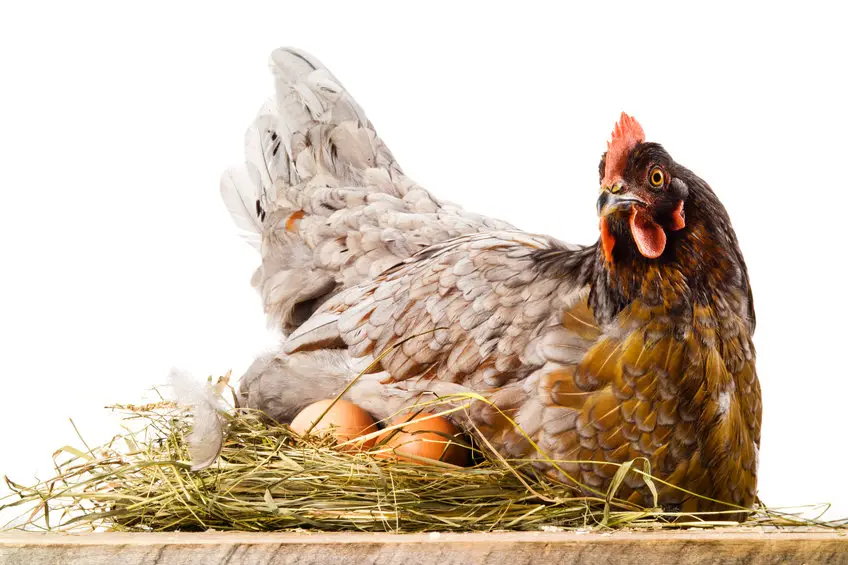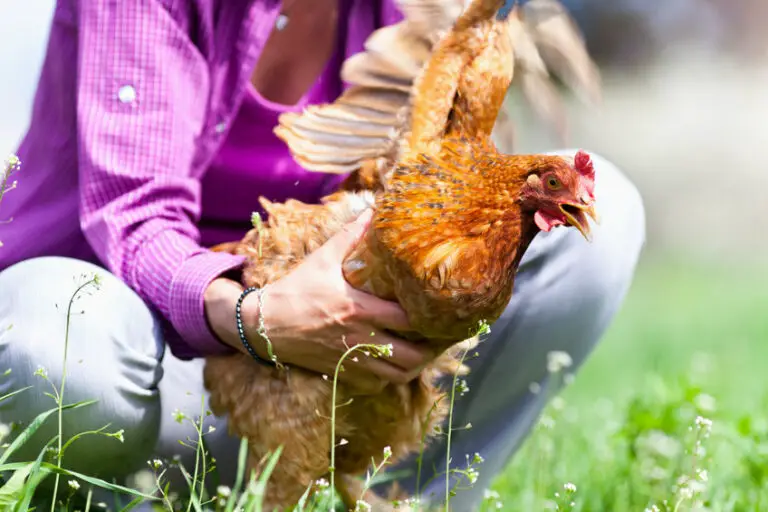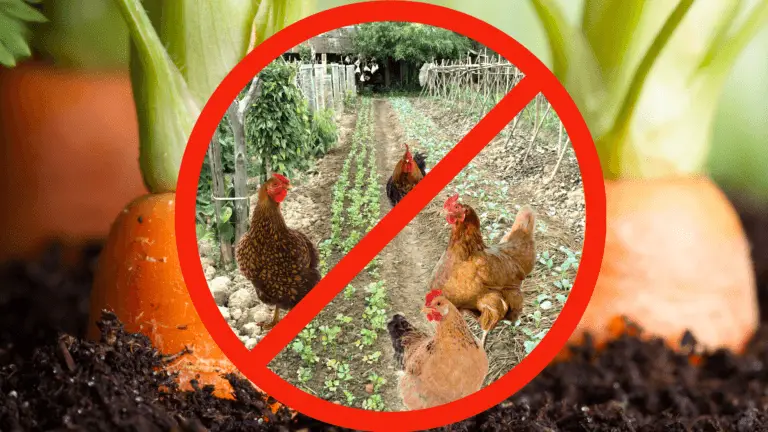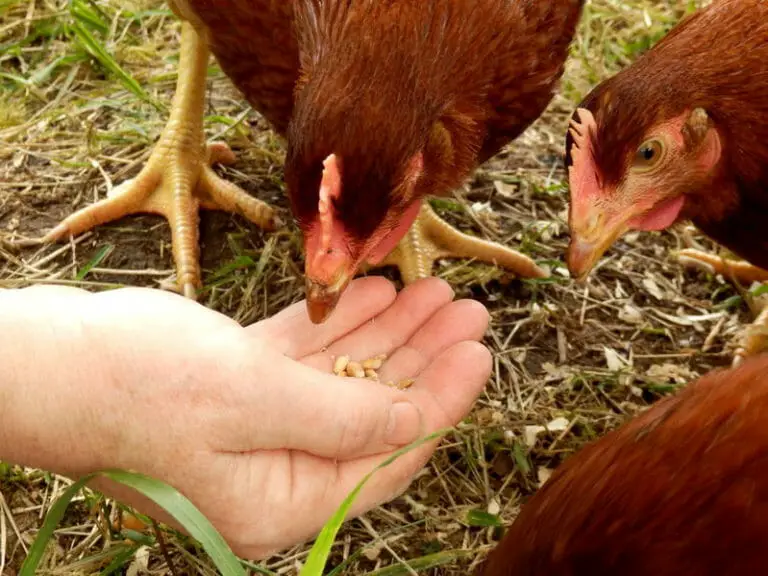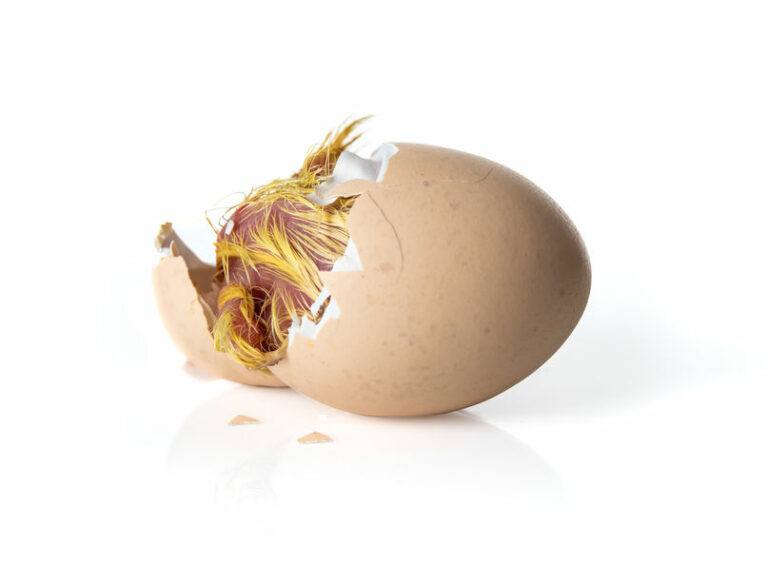Eight Tips For How To Deal With A Broody Hen
If you’ve owned chickens for any length of time, you’ve most likely had a broody hen at one point. We’ve owned many broods over the years and, almost without exception, there is a broody one (or more) every year.
We used to get upset over it but now we just roll with it. It’s part of the joys of owning chickens and we’ve learned a few tricks through the years for dealing with it. “So”, you may now be asking, “just how DO you deal with a broody hen?” We’ve got a few solid ideas in this article, eight to be exact!
Some of them we’ve tried ourselves, others we are basing on the methods we’ve read about in Backyard Chickens Forum, and from fellow ‘chickeneers’ in our locale.
First off, there are many reasons why your hen becomes broody, but this change can mean different things for different people. For some who don’t mind the broodiness, this can be a positive or neutral thing. However, others would rather that their chickens stop being broody.
If this is you, keep reading to find out ways to spot a broody chicken and prevent them from engaging in this bizarre habit.
What Is a Broody Chicken?
For those new to owning chickens, a broody chicken is a hen that has a desire for her eggs to hatch. In most cases, the hen will sit on her eggs or others all day (for weeks sometimes) until they hatch. Of course if you don’t have a rooster, then the eggs will not hatch no matter how long she sits on them.
Some signs of a broody chicken are more noticeable than others. The most obvious is if you notice your chicken sitting on top of a dozen or so eggs in the nest for hours on end. I swear they never leave the nest! At least not while we’ve been observing them.
Other signs can be if your chicken becomes more territorial over their nest, starts plucking their feathers in their breast area, and becomes more aggressive (pecking and biting) if you try to pick her up. Check out the video if you’re curious.
When Do Chickens Go Broody?
A hen becoming broody is usually a combination of factors. There is almost never just one reason why a hen suddenly became broody. In most cases, it is a mixture of maturity, hormones, and instinct. A chicken can become broody once a year, or not at all.
Most hens need warm weather to raise their chicks, so they will more likely become broody in the spring. But this can occur in the summer as well. In fact at the time of writing this, it’s mid summer and we have a broody Buff Orpington right now.
Young hens do not generally become broody in their first laying season, or during the winter. Having said this, there are always exceptions to the rule!
How to Prevent Broodiness
When trying to prevent a chicken from becoming broody, you have to keep a close eye on your more mature hens. As previously mentioned, young hens do not become broody during their first laying season.
Specifically, during spring is when you need to carefully watch your hens, as this is the time they are more likely to become broody. It is important to keep in mind that preventing a broody chicken does take some patience.
Here are our best tips on how to prevent a hen from becoming broody.
- Collecting Their Eggs – If you own a lot of chickens, collecting each and every egg can seem a bit overwhelming but it is an important element to preventing a chicken from becoming broody.
- Removing Them From Their Nesting Box – After or while you’re collecting eggs, try moving your mature hens into a separate area. Putting your hen in a crate, with access to food and water, would work best in this situation.
- Being Aware When It Happens – Ultimately, if you watch your chickens carefully during the spring and know all the signs of a broody chicken, you’ll be less likely to have a broody chicken.
How to Break a Broody Chicken
While some might view a broody chicken as a positive thing, others don’t. So if you want to make your chicken stop being broody, here are some of our tips.
1. Distracting Your Hen
Giving your hen something to do might help ease them out of their broodiness. Giving them a new dust bath container, or bedding to dig in can keep their mind busy.
2. Bother the Chicken
When your chicken is in her nest box, trying to disturb your chicken will prevent her from being broody. However, wear gloves or some type of protection because you most likely will be bitten or pecked.
3. Collect Their Eggs
Logic would suggest your chicken can’t be broody over eggs if they have none if they have to sit on. It doesn’t always work this way, however. But this tip can help prevent your flock from becoming broody in the first place.
We recommend taking her eggs as often as possible during the day. If feasible, you should also try putting the chicken away from the nesting area when you take the eggs. This can be instrumental in dissuading her from engaging in the behavior.
4. Remove the Chicken
Speaking of putting the chicken away, it’s a great idea to put your chicken into a separate area that is away from the nest boxes but will still give the hen access to food and water.
Ideally, creating a separate area using a coop or crate is what will be most beneficial for your chicken. One with a wire bottom tends to work best for some. Placing your chicken in the crate for three days or so will help break her broodiness more than anything else. However, if you see the broody behavior continue once you join her with the flock again, repeat the process.
If you can’t do that, blocking off any way the chicken could find her way back to the nest boxes (possibly using wood, for example) is also beneficial.
Some people construct a small area inside the coop for little miss broodie, or simply buy a small coop just for broody hens. These methods can work very well.
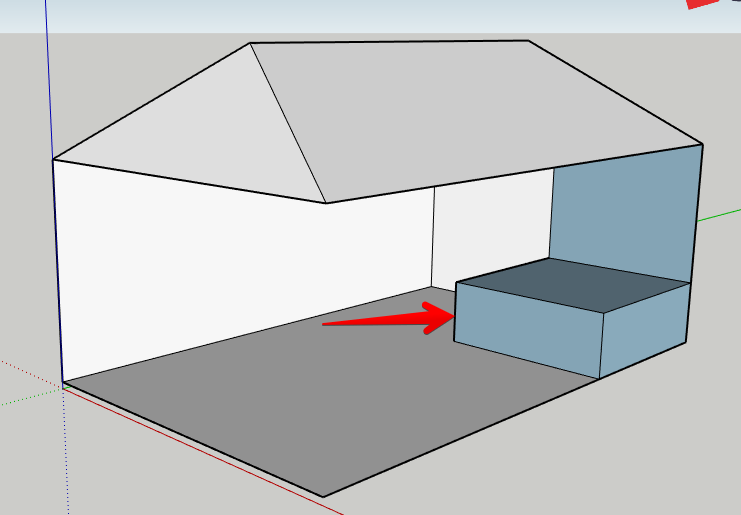
If you only have one broody hen, the area can be very small. Since broodiness doesn’t last more than a few weeks, you don’t need an elaborate long term set up. A simple box type area large enough for the hen and some food and water will do. An enclosed area, roughly 3ft by 3ft should be ample (see image above)
The image above shows ideas for brooders within the coop itself. The same areas could also be used for your broody hen! More on this set up can be found in this article on brooder ideas.
5. Try Using Ice Cubes
This might sound unconventional, but this tip is actually pretty neat. Hens don’t like the feeling of cold water in their nest boxes. So, try putting some ice cubes or even a bag of cold vegetables in the nest box.
6. Finding a Less Broody Breed
Ultimately, some breeds of chicken will always be more broody than others. If you don’t want a broody chicken, consider looking into finding a less broody breed. We love our Buff Orpingtons, but they have been some of our most broody chickens over the years. No way we’re getting rid of them though!
Breeds like Leghorn, Rhode Island Red, New Hampshire, Plymouth Rock, and Sussex are known to not be as broody. Of course, there are always exceptions in each breed. We’ve never seen broody behavior in any of the above breeds. Not that it can’t happen since, as you know if you’ve ever raised chickens, there are always exceptions.
Other Ideas That Have Worked For Us
We came up with a couple of other ideas to consider, should the above options not work well with your flock.
7. Leave Them Alone Until They Decide They’re Done
If you can’t break them of this behavior, they will eventually stop brooding on their own. This has happened to us before. We tried removing the eggs daily, causing distractions, and more, but it just didn’t work.
It was then we realized that it’s not going to really hurt anything if our broodster simply just lays in the nest all day.
The other hens will often join them and continue laying their eggs as usual. Miss broody will crawl out to get food and water when she needs it until she finally realizes there’s not a lot happening under her. At that point, she’ll give up her valiant effort to hatch some youngins,’ and move on with her life.
As we mentioned earlier, we have a broody hen at the time of writing this, and this is the strategy we’re using. We’re not in a place in our lives at the moment to get a rooster, hatch chicks, etc. so it’ll just have to run it’s course. We’re okay with that. We just continue gathering eggs and know that one day, she’ll be done and simply get out to join the others.
But read on if you’re up for a different sort of adventure…
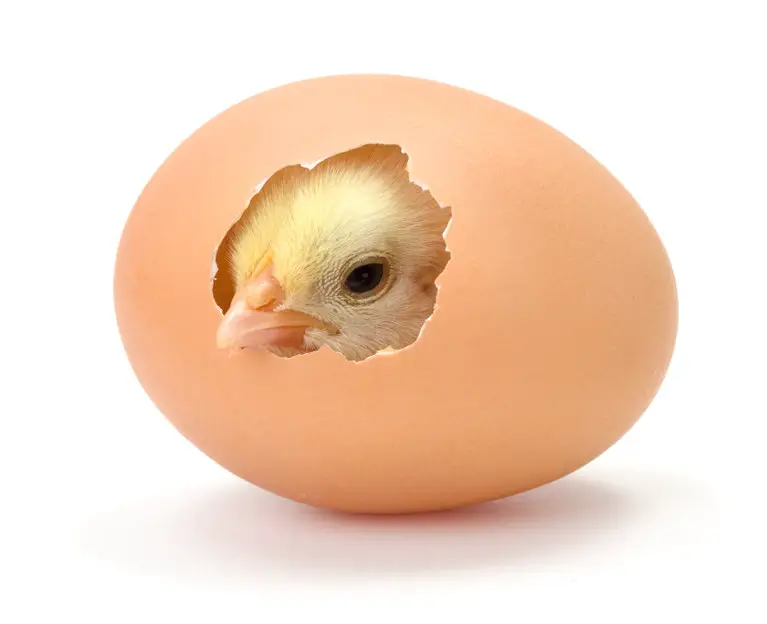
8. Hatch Some Eggs
This point goes counter to the rest of the article but is worth bringing up just in case. If you’re an adaptable flock owner, you can consider changing directions completely and hatch a few eggs!
A broody hen is the perfect incubator. Of course in order for this to happen, you’ll need to get a Rooster. If you go this route, we’ve identified how to find a suitable stud for your girls.
Right about now, you probably already know you’re either IN or are thinking “no way!”
We decided to try this ourselves one year and really had fun with it. It added a bit of extra work by finding a nice rooster, but it was really enjoyable. And, it provided a few hens (and roosters) for the following year!
Once we got a few chicks, the broody mama decided she had done her job, and left the nest. We put the chicks in the brooder and sent the rooster away to conduct his business at someone else’s farm.
It involved a bit more work than our original plan of just having a few hens but, all in all, it was so worth it. It’s definitely worth considering if you find yourself with a broody hen.
Conclusion
In summary, hens can and are naturally going to be broody for many, many reasons. Some breeds are just more likely to be broody than others. This is why it’s important to keep a watchful eye over your more mature hens, specifically during warmer weather.
However, if you happen to already have a broody chicken, we hope our tips helped you to break her of this nearly intractable habit. If you feel you just CAN”T get her to stay off the nest, there’s always the options of leaving her be until she decides she’s had enough, or hatching a few eggs! Chicks are a lot of fun.
Thanks for stopping by and happy ‘Chickening.’

